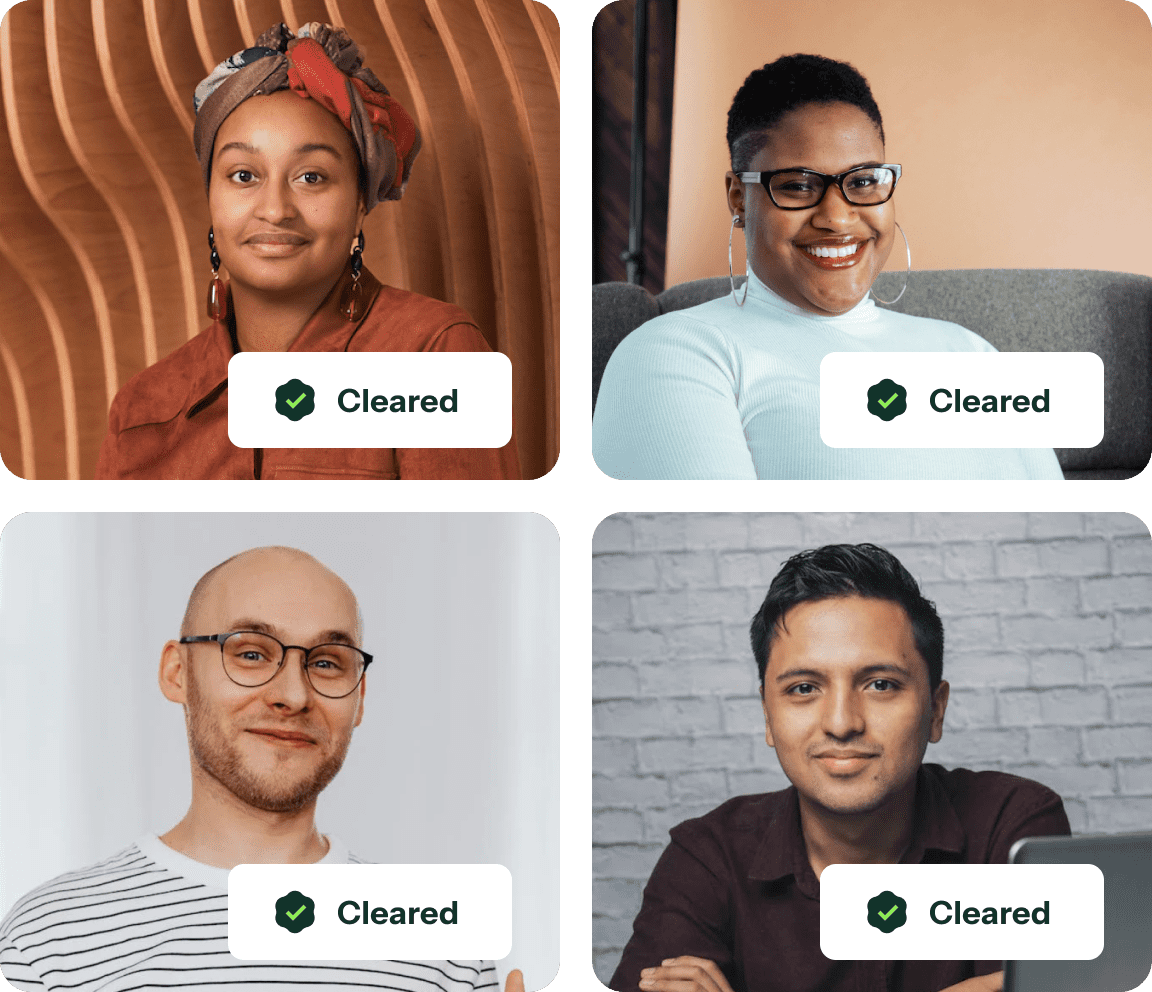Understanding the Reality of Criminal Records and Employment
In South Africa, the idea that a criminal record completely blocks job opportunities is a common misconception. While a record can influence hiring decisions – especially in industries that involve security, finance, or vulnerable populations – it doesn’t automatically disqualify someone from employment.
In fact, labour legislation in South Africa is designed to protect individuals from unfair discrimination, even when they have a past conviction.
This blog will guide you through:
- What the law says about hiring with a criminal record:
- When a criminal record can (and can’t) be used against you
- Your rights as a job seeker
- How employers must handle background checks
- What you can do to improve your chances of employment
What the Law Says About Criminal Records and Employment
Labour Relations Act (LRA), 1995
The Labour Relations Act protects employees from unfair labour practices and discrimination. Employers may not refuse to hire someone solely because they have a criminal record—unless that record is directly relevant to the job being applied for.
Example: A person convicted of theft may be unsuitable for a position handling money, but not necessarily for a role in maintenance or logistics.
Employment Equity Act (EEA), 1998
The EEA promotes equal opportunity and prohibits unfair discrimination. If an employer excludes a candidate based on a criminal record, they must prove that the conviction directly affects the person’s ability to do the job.
Protection of Personal Information Act (POPIA), 2013
POPIA treats criminal history as ‘special personal information.’ Employers must:
- Get written consent from the applicant before checking criminal history.
- Show a valid reason why the information is necessary for the role.
- Store and handle the information securely.
When Can a Criminal Record Impact Employment?
A criminal record may impact hiring in specific situations:
- When a job requires a professional license or regulatory clearance (e.g. PSIRA, FICA, childcare)
- When the conviction is directly related to job responsibilities (e.g. theft in a finance role)
Your Rights as a Job Seeker
As a job seeker, you have rights protected under South African law:
- You must give written consent for background checks.
- You cannot be unfairly excluded unless the offence is relevant.
- You can request your own record from SAPS or HURU.
- You may challenge incorrect or outdated information used in hiring decisions.
Why You Should Check Your Criminal Record Before Applying
Knowing what’s on your record helps you:
- Prepare for interview questions
- Identify any errors or outdated information
- Demonstrate transparency to potential employers
Pro Tip: Use a fast, POPIA-compliant provider like HURU to get your digital criminal background check before applying for jobs.
How to Expunge Your Criminal Record (If Eligible)
You may be eligible for expungement if:
- It’s been 10 years since your conviction
- The offence was not serious or sexual in nature
- You were not sentenced to prison without the option of a fine
Steps to apply for expungement:
- Get a Police Clearance Certificate from SAPS
- Complete Form J744 from the Department of Justice
- Submit your application with supporting documents
Can You Expunge Your Record? Quick Checklist:
- Has it been 10 years since your conviction?
- Was your sentence not direct imprisonment?
- Was the offence not serious or sexual in nature?
If yes to all, you may be eligible for expungement.
Tips to Improve Your Employability With a Record
- Be honest and upfront if asked about your record.
- Emphasise your rehabilitation journey with certificates, references, or community work.
- Consider getting your own background check to build trust with potential employers.
- Know your rights under the Labour Relations Act, Employment Equity Act, and POPIA.
Real-World Scenario
Sipho applied for a delivery job but had a 12-year-old offence for trespassing. Because he had checked his own record first, he knew exactly what would appear. In the interview, he confidently explained the context, showed how his life had changed, and was hired on the spot.
Conclusion: A Criminal Record Is Not the End of the Road
A criminal record can make job hunting more complex, but it doesn’t automatically close all doors. South African law supports second chances. Understanding your rights, preparing thoroughly, and taking proactive steps can greatly improve your employment prospects.
Resources & Further Reading
– Labour Relations Act
– Employment Equity Act
– POPIA Overview
– Expungement Guide
– HURU Criminal Record Check


